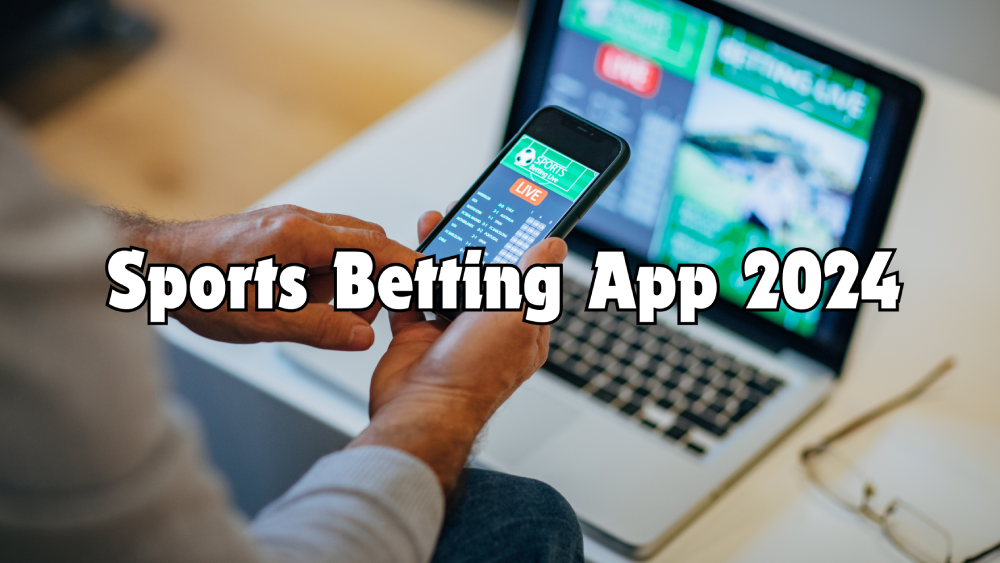
Sports betting has surged in popularity, becoming a multi-billion dollar industry worldwide. With the increasing legalization of sports gambling across the U.S., the demand for robust and user-friendly sports betting apps is soaring. But how exactly do you build one?
Pre-Development Essentials
Before getting all techie, laying a solid foundation is crucial. Here’s what you need to consider:
● Market Research and Niche: Identify your target audience. Are you catering to casual fans or seasoned bettors? What sports will be your focus? Understanding your niche informs app features and design.
● Legal Compliance: Sports betting regulations vary drastically across states. Ensure you have the necessary licenses and adhere to all gambling laws in your target market. Partnering with a lawyer specializing in gaming law is highly recommended.
● Monetization Strategy: How will your app generate revenue? Common models include commission on wagers (pay-per-head),
subscriptions, and in-app advertising.
Building Your Team: Key Roles and Responsibilities
Developing a sports betting app requires a talented team with diverse skill sets:
● Project Manager: Oversees the entire development process, ensuring deadlines and budgets are met.
● Front-End Developers: Craft the user interface (UI), the visual elements users interact with. Expertise in languages like HTML, CSS, and Javascript (JS) is essential.
● Back-End Developers: Build the app’s core functionality, integrating with data feeds, payment gateways, and user authentication systems. Languages like Python, Java, or Node.js are commonly used.
● Database Specialist: Designs and manages the database that stores user information, betting data, and other critical app functions. SQL knowledge is a must.
● QA Testers: Rigorously test the app for functionality, security, and user experience (UX) before launch.
Tech Stack for Development
The tech stack refers to the programming languages, frameworks, and tools used to build the app. Here’s a breakdown of popular choices:
Front-End:
● Frameworks like React Native or Flutter allow for cross-platform development, meaning you can build one codebase for both iOS and Android.
● JavaScript libraries like Material Design or Ant Design can accelerate UI development with pre-built components.
Back-End:
● Languages like Python (with Django or Flask frameworks) or Node.js (with Express framework) offer scalability and flexibility for handling complex server-side operations.
Database:
● Relational databases like MySQL or PostgreSQL are widely used for structured data storage.
● NoSQL databases like MongoDB offer flexibility for storing large amounts of unstructured data.
APIs (Application Programming Interfaces):
● Sports data APIs like Sportradar or Genius Sports provide real-time odds, statistics, and game information. Payment gateway APIs like Stripe or Braintree handle secure financial transactions.
Cost Considerations: Breaking Down the Budget
Developing a sports betting app can range from a modest investment to a significant undertaking. Here’s a cost comparison table to provide a general idea:
| Development Stage | In-House Team | Outsourced Team (Fixed Cost) | Outsourced Team (Hourly Rate) |
| Project Management & Planning | $20,000 – $50,000 | Included | $50 – $100/hour |
| Front-End Development | $40,000 – $80,000 | $30,000 – $60,000 | $75 – $125/hour |
| Back-End Development | $50,000 – $100,000 | $40,000 – $80,000 | $100 – $150/hour |
| Database Design & Development | $10,000 – $20,000 | $8,000 – $15,000 | $50 – $75/hour |
| API Integrations | $10,000 – $20,000 | $5,000 – $10,000 | $50 – $100/hour |
| QA Testing | $15,000 – $30,000 | $10,000 – $20,000 | $40 – $75/hour |
| Design & UI/UX | $15,000 – $30,000 | $10,000 – $20,000 | $40 – $75/hour |
A user-friendly and intuitive interface is paramount for a successful sports betting app. Here’s what to consider:
● Simple and Clean Layout: Uncluttered design with easy navigation is key. Users should be able to find desired information and place bets quickly.
● Live Data Integration: Real-time scores, odds updates, and statistics should be readily accessible and visually appealing.
● Multiple Betting Options: Offer a variety of wager types (moneyline, point spread, etc.) to cater to different betting preferences.
● Secure Payment Gateway: Integration with secure and trusted payment processors is crucial for user confidence.
● Personalization: Allow users to customize their experience by setting preferences for favorite teams, preferred betting options, and notification settings.
Going Live and Keeping Up
● App Store Optimization (ASO): Optimize your app listing with relevant keywords to improve discoverability in app stores.
● Security Measures: Implement robust security measures to protect user data and financial transactions. This includes encryption, secure authentication protocols, and regular vulnerability testing.
● Ongoing Maintenance and Updates: Regularly update your app with new features, bug fixes, and security patches to keep users engaged and maintain a competitive edge.
Security Measures
Security is paramount when dealing with sensitive user data and financial transactions. Implement robust security measures to protect against common threats such as data breaches, fraud, and unauthorized access. Here are some essential security practices:
● Data Encryption: Encrypt sensitive data such as user credentials, payment information, and communication channels using SSL/TLS protocols.
● Authentication and Authorization: Implement strong authentication mechanisms, including multi-factor authentication (MFA), to verify user identities securely. Use role-based access control (RBAC) to manage user permissions and restrict access to sensitive functionalities.
● Secure Payment Gateway Integration: Integrate trusted payment gateways that comply with industry standards (e.g., PCI DSS) to process transactions securely. Implement tokenization and encryption techniques to safeguard payment data.
● Regular Security Audits: Conduct periodic security audits and penetration testing to identify vulnerabilities and mitigate potential risks. Stay updated with security patches and best practices to address emerging threats.
Scalability and Performance Optimization
As your user base grows, scalability becomes critical to accommodate increasing traffic and ensure optimal performance. Employ scalable architectural patterns and performance optimization techniques to handle high loads efficiently. Here are some strategies:
● Microservices Architecture: Adopt a microservices-based architecture to decompose the application into smaller, independently deployable services. This allows for better scalability, fault isolation, and flexibility in technology choices.
● Caching Mechanisms: Implement caching mechanisms (e.g., Redis, Memcached) to cache frequently accessed data such as sports events, odds, and user preferences. This reduces database load and improves response times.
● Horizontal Scaling: Use containerization (e.g., Docker, Kubernetes) and auto-scaling solutions to dynamically add or remove resources based on demand. Distribute load across multiple servers or cloud instances to ensure consistent performance.
● Performance Monitoring: Monitor key performance metrics (e.g., response time, throughput, error rates) using tools like Prometheus, Grafana, or New Relic. Identify bottlenecks and optimize critical components for better performance.
Compliance and Regulatory Considerations
Compliance with legal and regulatory requirements is essential to operate a sports betting app legally and maintain trust among users. Stay informed about gambling regulations, licensing requirements, and responsible gaming guidelines in your target jurisdictions.
● Licensing and Permits: Obtain necessary licenses and permits from regulatory authorities to operate legally in specific regions. Ensure compliance with anti-money laundering (AML) and know your customer (KYC) regulations.
● Responsible Gaming Features: Implement features such as self-exclusion, deposit limits, and age verification to promote responsible gambling practices and prevent addiction.
● Geolocation Services: Integrate geolocation services to verify users’ locations and restrict access to the app in regions where online gambling is prohibited.
● Privacy Regulations: Comply with data protection laws (e.g., GDPR, CCPA) by obtaining user consent for data collection, processing, and sharing. Implement privacy-enhancing measures to safeguard user privacy and confidentiality.
Continuous Improvement and Maintenance
Launching the sports betting app is just the beginning; ongoing maintenance and continuous improvement are necessary to stay competitive and meet evolving user needs. Allocate resources for regular updates, bug fixes, feature enhancements, and performance optimizations. Gather feedback from users, analyze app metrics, and iterate based on insights gathered. Invest in marketing and customer support to attract new users and retain existing ones.
Advanced Technical Considerations
● Geolocation and Geo-fencing: Leveraging GPS or IP address data to identify user location is crucial for complying with ge restrictions on sports betting. Geo-fencing allows you to restrict app functionality based on user location.
● Push Notifications: Sending timely notifications about game updates, betting reminders, and promotional offers can enhance user engagement. However, ensure notification settings are customizable to avoid overwhelming users.
● Real-time Betting Integration: Integrating with real-time data feeds allows users to place bets on live games. This requires robust back-end infrastructure to handle high volumes of data and rapid updates.
● Cash Out Option: The ability to cash apps out a bet before the event concludes is a popular feature. This necessitates complex calculations and risk management strategies on the back-end.
● Artificial Intelligence (AI) and Machine Learning (ML): Implementing AI/ML can personalize user experiences by recommending bets based on past behavior and offering insights into game outcomes. However, responsible use and transparency regarding AI integration are crucial.
Emerging Technologies in Sports Betting Apps
The world of sports betting apps is constantly evolving. Here are some future-looking trends to consider:
● Blockchain Technology: Blockchain can potentially revolutionize sports betting by offering secure and transparent transactions and fostering a decentralized betting ecosystem.
● Virtual Reality (VR) and Augmented Reality (AR): VR/AR integration can create immersive betting experiences, allowing users to virtually attend games or visualize betting options.
● Voice-Activated Betting: Voice assistants like Siri or Google Assistant can potentially be integrated for a hands-free betting experience.
SOURCES:
